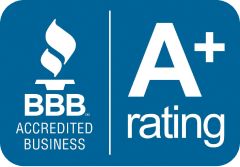
Q: If I’m still working at 65, do I need to enroll in Medicare?
A: Medicare eligibility begins at age 65, and enrolling early might save you money on premiums. However, if you’re working at the age of 65, you have a little more leeway.
Your family cannot be added to your Medicare coverage. Once you’ve enrolled, find out how to make sure they have health insurance.
At the age of 65, you become eligible for Medicare. Your initial enrollment window is a seven-month period that begins three months before and ends three months after your 65th birthday. Seniors are often urged to join up as soon as possible to avoid fines that might be costly in the long run.
If you don’t sign up for Medicare in a timely manner, you face a 10% surcharge on your Medicare Part B payments for each year you go without coverage after becoming eligible. (Most people don’t have to pay a late enrollment penalty because Medicare Part A is generally free.) If you’re still working at 65, though, you’ll have to follow a new set of restrictions.
Find Medicare Plans in 3 Easy Steps
We can help find the right Medicare plans for you today
No need to double up on coverage
Many seniors are no longer employed by the time they reach 65, so they rush to enroll in Medicare as soon as they can. You don’t have to enroll in Medicare right now if you’re still working at 65 and have coverage via a group health plan through a business with 20 or more employees. If your company has less than 20 employees, however, you must enroll in Medicare Parts A and B, as this will be your primary insurance. If you don’t enroll, your employer’s health-care plan may pay less – or nothing – for your care once it learns.
Even if you already have health insurance, it’s frequently a good idea to enroll in Medicare Part A on time. It will not cost you anything, and Medicare will act as your secondary insurance, covering whatever your primary insurance (in this example, your employer’s health plan) does not. The only exception is if you’re already contributing to a health savings account and want to keep it up. Even if they continue to be covered by an employer’s HSA-qualified high-deductible health plan, Medicare participants are not permitted to contribute to an HSA.
Find Medicare Plans in 3 Easy Steps
We can help find the right Medicare plans for you today
Your Medicare special enrollment period
If your firm has at least 20 workers and you’re still working and insured by that plan when you reach 65, you can postpone enrolling in Medicare (particularly, Medicare Part B, which enables you to avoid the Part B premium while still covered by your employer’s plan). If you leave your work or your company ceases giving coverage, you’ll have an eight-month special enrollment period to sign up for Medicare. It will begin the month after you leave your employment or the month after your group health insurance coverage expires, whichever comes first.
If you sign up within those eight months, you won’t have to worry about late fees or premium surcharges. If you’re delaying Part B enrollment because you’re covered by your spouse’s employer-sponsored plan, the eight-month special enrollment period is also accessible, provided their firm has at least 20 employees.
However, it must be a present employer in both cases. If you’re covered by COBRA or a retiree plan, you won’t be exempt from the Part B late enrollment penalty, and you won’t be able to sign up for Part B during a special enrollment period – you’ll have to wait for the standard enrollment period instead.
Run the numbers
Although you are not required to join Medicare at the age of 65 if you have coverage via a qualifying group health plan, it may make sense to do so if your employer does not significantly subsidize your plan. Calculate how much you’re paying for group health insurance and what your benefits are, then compare that to what you’ll pay under Medicare, accounting for everything from premiums to coinsurance, deductibles, and copays.
Keep in mind that you’ll need a Part D prescription plan in addition to Parts A and B to get full Medicare coverage. Even if you’re eligible for a special enrollment period, later on, you could discover that signing up for Medicare at 65 makes the greatest financial sense.







